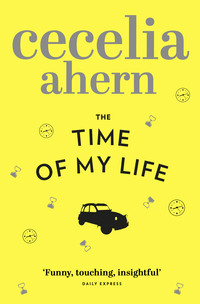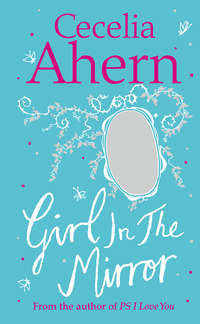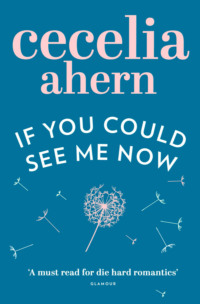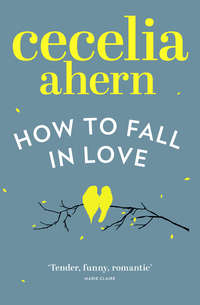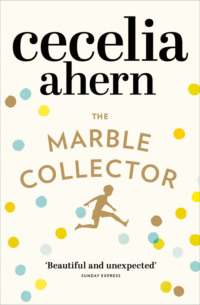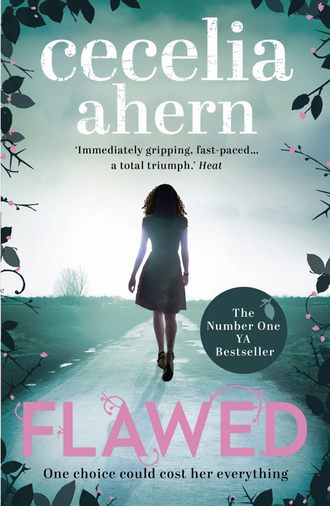
Полная версия
Flawed
When I think back to that moment, my heart soars as it did then, and everything is heightened, magical, musical and mystical, almost too good to be true. I could live that moment for ever, his lips on mine, our bodies pushed together, both of us hungry for more, our future as wide open as the vista before us, as bright as the moon. It was just us on top of the sleeping world, invincible, untouchable.
It was the most perfect moment in my life.
It was the last perfect moment in my life.

I wake up, and the first thing I do is slide my leg out from under the duvet to check my ankle. Anklet still there. It was not a dream, not some juicy figment of my imagination that dissolves as soon as I wake. I snuggle down under the covers to relive it in my head and then realise that delaying this morning would delay spending time with Art. He will be waiting for me, as he always is, at the bus stop, where we will go on to school together.
Despite my joy, my sleep was fitful, with so much to absorb after the Angelina Tinder scene. I feel unsteady on my feet as I get dressed. Something has been shaken, stirred within me. My feeling of security has been tested, and perhaps my trust, though not with Art, whom I trust more than ever. Oddly, I think it is with my own self.
I don’t need to think when I dress; I never do, not like Juniper, who is swearing and sighing as she pulls yet another outfit over her head in frustration, never happy with how she looks. She gets up half an hour earlier than I do just to get dressed and still ends up being late every morning.
Most people who don’t know our personalities can’t distinguish between me and Juniper. With a black dad and a white mum, we have both inherited Dad’s skin. We also both have Dad’s brown eyes, his nose and his hair colouring. We have Mum’s cheekbones, her long limbs. She tried to get us into modelling when we were younger, and Juniper and I did a few shoots together, but neither of us could stay at it. Me because posing for a camera failed to intellectually stimulate me, Juniper because she was even more awkward and clumsy under people’s gazes.
When it comes to how we act, how we dress and everything else about us, though, we couldn’t be further apart.
I put on a cream linen dress and baby-pink cashmere cardigan, with gold gladiator sandals that spiral up my legs. It’s hot outside, and I always wear pastel colours. Mum likes to buy pastels for all the family. She thinks that we look more like a unit when we’re dressed that way. I know of some families who hire stylists to help co-ordinate not just the clothes but their overall look as a family. None of us wants to look out of place or like we don’t belong, though Juniper often likes to do her own thing, wearing something that’s not a part of our family colour palette. We let her do just that – her loss, though Mum worries that it makes us look fragmented. I think the only person who looks fragmented is Juniper.
As usual, I’m downstairs before my sister. Ewan is at the table eating breakfast. He’s wearing cream linen trousers and a baby- pink T-shirt, and I feel happy we match. A good start to the day.
Mum is staring at the TV, not moving.
“Look what I got last night,” I sing.
No one looks.
“Yoo-hoo.” I circle my ankle in the air, graceful like a ballerina.
Ewan finally looks at me, then down at my ankle, which I’m dangling near his face.
“A bracelet,” he says, bored.
“No. A bracelet is an ornamental band for the wrist, Ewan. This is an anklet.”
“Whatever, Thesaurus.” He rolls his eyes and continues watching TV.
“Art gave it to me,” I sing loudly, floating by Mum to get milk for my cereal from the fridge.
“Wonderful, sweetheart,” she says robotically, as though she hasn’t heard at all.
I stop and stare at her. She is completely engrossed in the TV. I finally pay attention and see it’s News 24, and Pia Wang is reporting live from Highland Castle. Pia Wang is the correspondent for the Guild. She covers every case in extreme detail, providing a profile of the Flawed, during the trial and after. It’s never a favourable profile, either. She does a good job of burying whomever she wants, though to her credit, she’s covering Flawed cases, people who have made bad decisions, so she’s not exactly trying to glamourise them.
I look out the window. Dad’s car is gone. He must have been alerted to the story and had to take off early. That happens a lot.
“This case has garnered more attention than any other,” Pia says, her face perfect with peach-blush cheeks. She is wearing peach, and she looks like you could eat her, a perfect china doll. Glossy black hair, a fringe framing her innocent-looking, petite face. So perfect. “Even gaining attention around the rest of the world, which is reflected here in the turnout outside the Guild court in Highland Castle, with record numbers of people turning out to support their football hero Jimmy Child, Humming City’s best striker, who has led us to victory for so many years. And today he is victorious again, as he left the court only moments ago having been deemed by Judge Crevan and his associates not to be Flawed. I repeat, breaking news to those who have just joined us: Jimmy Child is not Flawed.”
I gasp.
“What?” I say. “Has that ever happened before?”
Mum finally breaks her stare from the TV. “I don’t know. I don’t think so. I … maybe once,” she says vaguely.
“Not a surprising result when a Crevan owns a share in the football team,” Juniper says suddenly from behind us. I turn to her.
Mum’s face looks pained. “Juniper …” she says simply.
“Damon Crevan. Owns a fifty-five per cent stake in Humming City, but I suppose everyone will tell me that’s just coincidence. If you ask me, it was his wife they put on trial,” Juniper says. “And that dirty man got away with it.”
Nobody disagrees. Jimmy Child’s glamorous wife has been on the front page of every newspaper for the past few weeks as her lifestyle was thrashed out for all to see. Every aspect of her, every inch of her body, was fodder for gossip sites and even news sites.
“Go to school,” Mum says in a warning tone. “Any more talk like that and they’ll come for you, missy.” She clips Juniper’s nose playfully.
She was almost right.

When I step outside, I see Colleen standing at her family’s car. The front door of her house is open, and she looks like she’s waiting. I guess she won’t be going to school today, probably heading to the courthouse to her mum’s trial. My heart beats wildly as I try to figure out what to do. If I say hello, I might get in trouble. Anybody could see me speaking to her from their home, and I might be reported. What if Bosco sees me from one of the windows of his monstrous mansion, or as he leaves for work? Saying hi may be seen as disloyalty towards the Guild, as support for her and her mum. Would that be seen as aiding and assisting a Flawed? I don’t want to go to prison. But if I ignore her, it will be rude. It is Colleen’s mother who’s Flawed, not her. She looks over at me and I can’t do it. I look away quickly.
Behind me I hear Juniper say, “Good luck today,” to Colleen. It annoys me how easily she does it and then puts on her headphones and ignores everyone.
Art is already at the bus stop waiting for me, as usual, looking delicious, as usual. I leap on him as soon as I get to him.
“Bird.”
“Mouse.”
He kisses me, but I pull away quickly, excited to discuss the news.
“Did you hear about Jimmy Child?”
I expect Art to be elated. Jimmy Child is his hero, and up until a year ago he had his posters plastered all over his walls. Most boys did. Throughout the trial, Art had the opportunity to meet him, though a quick meet and greet in a holding cell before court wasn’t what he’d been dreaming of throughout his boyhood, and he hadn’t wanted to discuss it much.
“Yeah,” he says. “Dad left at the crack of dawn this morning. He wanted to push the verdict through first thing, in time for the morning news.”
I think about how I should have said hello to Colleen; I should have known Bosco wasn’t home to have seen me, he was at court early, and what harm would it have done anyway to simply say hello? I’m angry with myself.
“I can smell your brain burning. You okay?” He sticks his knuckle into my frown and screws it around.
I laugh. “Yeah, I was just thinking. I didn’t know they had secret Naming Days. I thought it was always public. That’s so sneaky.”
“Not as sneaky as you and me,” Art says, fingers creeping up my top.
I laugh and stop his hand from travelling, something suddenly on my mind. I look over at Juniper, who is listening to her music so loudly I can hear every word from here.
I lower my voice. “Do you think Jimmy Child’s wife was put on trial?”
“Serena Child?” he asks, surprised.
“Yeah. When you think about it –” because I have been thinking about it, ever since Juniper said it, and on the walk to the bus stop with my new wobbly legs that haven’t been working since I stood up this morning – “every day it wasn’t about him or about what he’d done, but about how she was so annoying and so fake and such a woman, how could he not cheat?”
Art laughs. “I don’t think that’s exactly what Pia said.” He smiles at me fondly. “‘Reporting live,’” he says, imitating Pia. “‘Isn’t Serena Child such a woman? How could he not cheat?’”
I laugh, realising how stupid it sounds, then turn serious, wanting to be understood. “No, but the way they talked about her looks. The surgery. The clothes. Her past … her cellulite. She’d kissed a girl – so what? Her tan being too orange, her eating disorder when she was fifteen. She went to school with someone who ended up being a bank robber. She never cooked a meal for her husband. He had to keep going to that diner. We learned everything about her. Like she was the one who was Flawed. Not him.”
Art laughs again, enjoying the ridiculousness of what I’m saying, or perhaps the fact that it’s so surprisingly out of character for me to say it at all. “And why would they put her on trial?”
“So he gets away with not being Flawed. People say she wasn’t a good wife, so how could he not have cheated? And the star player is still the star.”
His smile instantly fades, and he looks at me like he doesn’t know me. “Celestine, be careful.”
I shrug like I don’t care, but my heart is pounding from even saying this aloud. “I was just saying.”
Juniper has got to me. I was unsure already, and what she said this morning niggles at me more and has me considering the truth in her words. I can’t stop thinking about it as we wait for the bus. I think about Colleen, on her way to the courthouse to see her mother, her mother who is about to be branded Flawed for travelling to another country to help carry out her own mother’s wishes. Does that really make her Flawed? I’m not ready to park this thought yet. It’s Art, the person I share everything with. Surely I can share one more. He can help sort out these muddled thoughts.
Art reaches for my hand and I feel safe.
“Do you think it’s bad what Angelina did?” I say quietly.
He looks at me.
“Because I’ve been thinking about it. All night. And I don’t think it’s that bad. Not if it’s what her mum wanted. I mean, I can think of worse.”
“Of course there’s worse.”
“So even though there’s worse, everyone gets branded the same?”
“She will only get one brand. On her hand. Some people get two.”
He’s not thinking about this properly. I know he’s not. I know him. His answers are too quick. He is defensive, though I’m not attacking him. This is how it gets when people have discussions about the Flawed. Everyone has such strong opinions it’s almost like it’s personal. Only it’s even more so for Art because his dad is the senior judge of it all – his grandfather was the founding member of the Guild. I was always in awe of them for that. I still am. Aren’t I?

Once on the bus and in our usual seats, I concentrate on the Flawed lady in front of us, in the reserved place that only Flawed people are allowed to occupy. There are two seats for the Flawed on the bus, because rules state that three or more Flawed are not allowed to gather together at any one time. It’s to prevent the riots that broke out when the Flawed punishments were introduced. However, I wonder for the first time why they didn’t just put another two Flawed seats at the back of the bus or somewhere else away from them. Alternate Flawed and regular people’s seats. Very often there are Flawed standing when the bus is filled with empty seats, which has never bothered me in a moral way, but does bother me when I’m getting off the bus and have to squeeze by them. I swear some of them don’t move deliberately, making me squish up against their Flawed bodies to get past. The Flawed seats have bright red fabric and are at the front of the bus, facing all the other passengers so that everybody on the bus can see that they are Flawed. I used to find it uncomfortable when I was a little girl, having to face them throughout the journey, but then, as I got used to it, I stopped seeing them.
I watch the Flawed woman sitting alone on the seat, her armband with the blood-red symbol identifying her.

I see the symbol on her temple, too, and wonder what bad judgement she made to land herself in this predicament. The scar on her temple is certainly not new. It doesn’t have the red-hot, crusted look of newly seared flesh as some Flawed have. She has been Flawed for quite some time, and I wonder if this means she’s worse now, if Flawed get more Flawed with age or if the branding, the acknowledgment of it, stops it from spreading and growing.
She is texting; and when she rests the phone on her lap, I see the screen photo of her with children. For the first time I wonder what it’s like for the Flawed to live life in the same world as everybody else they love, but under different rules. It has never occurred to me before. I think of Angelina and her children. Angelina will have job restrictions, curfews, travel restrictions. How can she mother her children if she is living under different rules? What if there is an emergency in the middle of the night? Can she break her curfew to bring her children to hospital? What if the Tinders go on a family holiday abroad and Angelina can’t go? What if Colleen decides to work and live abroad? Her mother won’t be able to visit her. Ever. And why have I never thought of these things before?
Because I never cared, that’s why. Because if people have done something wrong, they deserve their punishment. They’re not criminals, but they’re just missing being physically behind bars. Only… if Angelina, who could never hurt a fly, can so easily be considered Flawed, then perhaps this woman before me is no worse, either. I have never spoken to one before. It’s not that we’re not allowed to; it’s just that I wouldn’t know what to say. I step around them when they’re near me; I avoid their eye contact. I suppose I act like they don’t exist. They’re always in the Flawed section of the supermarket, the one I pass through aisles to avoid, buying their grains and oats and whatever else they have to eat as part of their basic diet for their basic living. A life with no luxury is the punishment. I never thought it would be such a bad thing; it’s not like they’re behind bars. But then I never thought of having to live like that when your husband doesn’t, or your kids don’t, or the rest of society doesn’t. And then they’re not really allowed to socialise together. No more than with one other at a time. For every two Flawed, there needs to be a regular person just for numbers. I think of a Flawed wedding, a Flawed birthday party, and shudder. I wonder what they even talk about with each other. Do they swap stories of how Flawed they are, show their brands and laugh with pride, or are they ashamed, as they should be?
I feel Art’s lips on my earlobe. “If you don’t stop thinking, your head will explode,” he whispers. His breath is hot, and it makes the hairs on the back of my neck stand up. I want to stop thinking. I really do, but I can’t. For once he doesn’t have my full attention. He’s trying to bring me back to him, but I can’t go there. I’m caught in this thought, in this moment.
The bus stops and a woman with crutches gets on. The driver helps her and guides her to the Flawed seats, which have the most legroom. The seats are deliberately set further away so people don’t have to touch them or bump against them, reinforcing that distinction between us and them. She sits beside the Flawed woman, who smiles at her.
The other woman throws her such a look of disgust that I’m embarrassed for the Flawed mother, who looks away, hurt visible in her eyes. She senses that I’m looking at her, and our eyes meet for a minuscule moment before I look away, heart pounding from having made contact. I hope no one has seen. I hope it doesn’t look like I’m on her side.
“What is going on with you today?” Art asks, a slightly bewildered and amused expression on his face.
“Oh, nothing,” I say, trying to smile. “I’m just perfect. That’s all.”
He smiles and rubs the palm of my hand with his thumb, and I melt.
Juniper sits across the aisle from us, her body pushed so far up against the window she couldn’t possibly get any further away from me and Art, or anyone else on the bus for that matter.
I don’t know when things became like this between me and Juniper. Photos and stories prove that we were extremely close as children. Juniper is the big sister by a small amount, but she enjoyed mollycoddling me, taking on the role of nurturing big sister. But when we began high school, things started to change between us. Though we were in the same year, we were in different classes and made our own friends for the first time and the divide began. I excelled in school – I adore information and am always hungry to know more. I read books, I watch documentaries, my favourite subject is maths and I hope to study it at the city university when I finish school this year. My aim is to win the Fields Medal, the International Medal for Outstanding Discoveries in Mathematics, viewed as the greatest honour a mathematician can receive, like a maths Nobel Prize. You have to be under forty to win it. I’m seventeen. There’s time. Test results so far show that I’m on course to get into my university programme with ease. Juniper isn’t the jealous type, but the difference in our marks at school was the first thing to set us apart.
My results were celebrated; hers weren’t. They were never bad; they just weren’t perfect. Everybody always wanted her to do better, to be better. And I understand the pressure she was under, but I could have been there to help her, not be the one she eventually blamed.
She thinks I’m a know-it-all, which she has told me plenty of times, and I try not to be, I really do. I know I have a habit of correcting people’s grammar or recounting dictionary definitions, but that’s just me. Doing it does not make me feel I am better than the person I am saying it to. It is just an expression of who I am. I try to ask her questions, the meaning of things, pretend not to know something that I do know, but she finds this patronising. She’s right, but I don’t know what else to do. My striving for perfection includes wanting to have the ideal relationship with my sister, like in the movies I see and the books I read, the stories that tell you that sisterhood is the one real true love and relationship you will have in your life.
Juniper is dyslexic. She sees this as another failure, another trait that has let her down, but I can see that it makes her view things in a different way. I’m a problem-solver. I read the signs, the proof that I see before me, and come to a conclusion. Juniper is cleverer than that. She reads people. I don’t know how she does it, but she watches and listens and arrives at conclusions I could never imagine, and usually she’s right. I look at things straight on; her perspective seems to curve round things, wind and twist, turn things upside down to reach the answer. I have never told her that I think this about her. I tell myself it’s because I don’t want to come across as patronising, but really I know it’s because I have a jealousy of my own.
I think about what Mum said earlier about Jimmy Child maybe not being the only person to have been found not Flawed.
“Did you know that there might be other people who went through the Flawed court and were found to be not Flawed?” I whisper to Art.
I feel his grip on my hand loosen as he turns to me. He’s annoyed I won’t let go of this. “No, I didn’t know.”
“I think there must be other people found innocent that we don’t know about. Has your dad ever said anything?”
“Bloody hell, Celestine, drop it, will you?”
“I’m just asking.”
“You’re not really supposed to.”
“Aren’t I?”
“Not here, anyway,” he says, looking around nervously.
I go quiet. I can only look ahead at the Flawed woman, head swirling with unfamiliar thoughts. Dangerous thoughts.

At the next stop, the Flawed woman gets off and a rather large lady gets on. She recognises the woman with the crutches and sits down beside her, and they chat.
At the next stop, an old man gets on the bus, and I almost call out to him. He looks so much like my granddad that I’m convinced it’s him, which doesn’t make sense because my granddad lives on a farm in the country, but then I see the large F symbol on his armband and I shudder, annoyed with myself for ever thinking someone like him could possibly be related to me.
My prejudice strikes me. I had been repulsed by the reaction of the woman with the crutches to the Flawed woman smiling at her, but I hold equal views of my own without ever realising it.
The man is in his seventies or eighties. I’m not sure. He’s old, and he is dressed in a smart suit and polished shoes, as if he’s on his way to work. From this angle, I can’t see any signs of branding, though it could mean it is on his chest, tongue, or foot. He looks respectable, and again I study him, surprised by his appearance. I always thought of the Flawed as less than us, and I can’t believe I have admitted that to myself. He is unable to sit, because the two Flawed seats are taken – by two women who are not Flawed but who are so busy chatting that they don’t notice him. He stands near them, holding on to the pole to stay upright.
I hope they notice him soon. He doesn’t look like he will go very far standing.
A few minutes pass. He is still standing. I look around. There are at least a dozen free seats where he could sit, but he is not allowed to. I’m a logical person, and this does not seem logical to me.
I look across at Juniper, who has taken off her headphones and is sitting up, poker straight, alert and looking at the same situation that I am. Juniper has always been more emotional than I am, and I can see her on the edge of her seat, ready to pounce.Instead of fearing she will do something stupid, for once I am glad she and I feel the same.
The old man starts coughing. And then he won’t stop.


